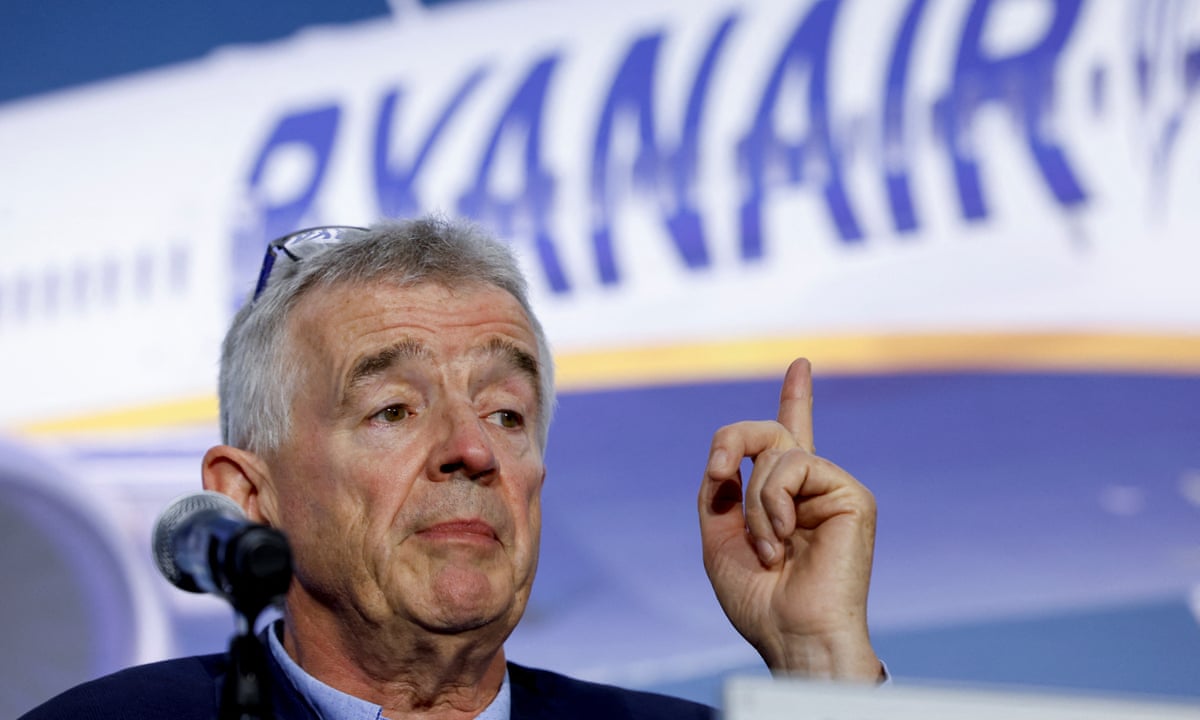
By R Mc Aney
In a recent appearance before the Oireachtas Transport Committee, Ryanair CEO Michael O’Leary issued a stark warning: passengers flying to Dublin this Christmas could face fares as high as €1,000. O’Leary attributed this anticipated spike to the passenger cap at Dublin Airport, a situation he claims the Irish government will be blamed for, but one that stands to benefit Ryanair financially.
The Passenger Cap Controversy
The crux of the issue lies in the 32 million passenger cap imposed on Dublin Airport, a figure the Dublin Airport Authority (DAA) is currently seeking to increase to 40 million through a pending planning application. O’Leary has been vociferously critical of the cap, arguing that it hampers Ryanair’s ability to meet demand during peak travel times. For the upcoming winter schedule, Ryanair’s request for an additional 514,000 seats—including 270,000 for Christmas—was denied due to this limit.
Financial Implications and Government Accountability
O’Leary’s blunt assertion that the fare increases will “suit me fine” as Ryanair stands to profit from the situation underscores a broader economic dynamic. He stated that while airlines are typically accused of hiking prices during high-demand periods, this year, the fare increases are a direct consequence of the unmet demand due to the cap. By framing the issue as governmental negligence, O’Leary shifts the focus from corporate pricing strategies to public policy constraints.
The Polluter Pays Principle and Its Socioeconomic Impact
This scenario brings into sharp relief the application of the “polluter pays” principle, which is often seen as disproportionately affecting the working class. In environmental policy, this principle suggests that those who produce pollution should bear the costs of managing it. However, in practice, measures like airport caps, intended to mitigate environmental impact, can result in higher costs for consumers. These costs are more burdensome for lower-income travellers, effectively penalising them more than wealthier individuals who can more easily absorb the price hikes.
DAA’s Perspective and Infrastructure Concerns
The DAA has countered O’Leary’s claims, particularly his suggestion that the airport should have pursued cap increases and additional parking solutions earlier. A DAA spokesman emphasised the legal and logistical complexities of expanding airport infrastructure, noting that local planning laws currently prohibit the addition of more parking spaces. The spokesman also disputed O’Leary’s projection that it would take four years to approve the increase to a 40 million passenger cap, arguing that the process could be expedited.
Environmental and Economic Balance
The debate around the passenger cap also touches on broader environmental concerns. Originally introduced in 2007 with the opening of Terminal 2, the cap aimed to prevent traffic congestion around the airport, a measure tied to broader sustainability goals. O’Leary dismissed these concerns, citing increased bus links as a sufficient solution, but the long-promised Dublin Metro remains an unfulfilled project, perpetuating infrastructure inadequacies.
Political and Public Reactions
O’Leary’s remarks have ignited discussions among politicians and the public. Transport Minister Eamon Ryan has maintained his stance of not interfering with the planning process, a position that aligns with the Green Party’s environmental priorities. Meanwhile, O’Leary’s theatrical tactics, such as using masks of Green Party politicians during press conferences, reflect his combative approach to public policy debates.
Conclusion: A Complex Web of Interests
The looming fare hikes at Dublin Airport are emblematic of a complex interplay between corporate interests, government policy, and environmental considerations. While Ryanair stands to benefit financially from the constrained supply, the broader implications for consumers, particularly those with limited financial flexibility, are significant. The situation underscores the need for a balanced approach that considers economic viability, environmental sustainability, and social equity in transport policy.
For further reading on the topic and related updates, visit the following articles:
1. Irish Mirror Article on Dublin Flight Prices
2. The Journal’s Coverage on Dublin Airport’s Passenger Cap
3. Independent.ie on Ryanair’s Criticism of the Government
